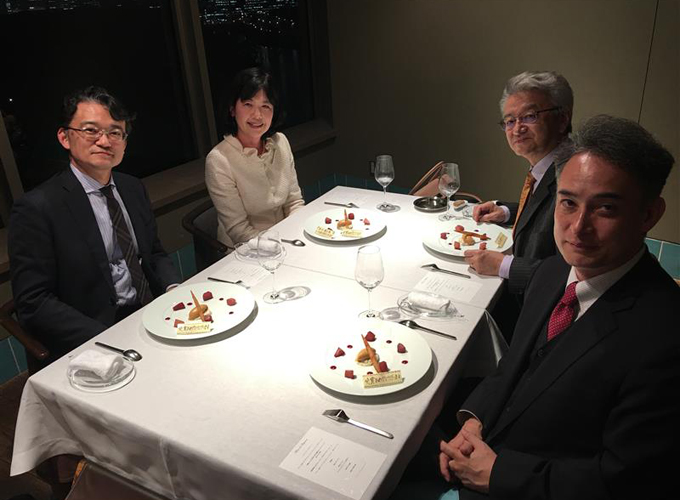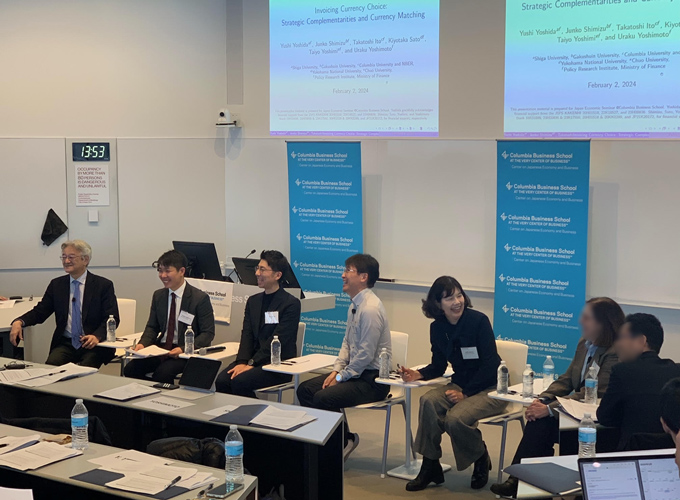Prof. Takatoshi Ito passed away on September 20, 2025. His passing came too soon, and I still can’t believe that it’s real.
I first met Prof. Ito in the early 2000s when I was working in an ASEAN+3 research group. At that time, government officials and researchers from emerging Asian countries, as well as Japan, China, and South Korea, often met to conduct joint research and hold discussions on various topics in order to promote regional financial cooperation after the Asian currency crisis. Among those researchers, Prof. Ito was a remarkable presence. He had received his PhD. from Harvard University, had many friends who were famous economists, and possessed outstanding insight gained through his broad experiences at the IMF and many other organizations, and many sought his input. In my research on Asia, I toured various countries with Prof. Ito. I remember being impressed by his resolute attitude when he met with minister-level class officials of emerging countries and gave frank opinions on the policies that he believed were the best. The last of my trips to Asia with Prof. Ito was a visit to Thailand last year. The Bank of Thailand always welcomed him warmly, as its former governor Veerathai Santiprabhob was once a student of Prof. Ito at Harvard University. I fondly recall sharing lunch with Prof. Ito at a historic building beside the Chao Phraya River during our visit to Thailand last year.
At RIETI, we collaborated on research through interviews and questionnaire surveys on Japanese companies’ foreign exchange risk management and their choice of invoicing currencies starting in 2007. Prof. Ito was wondering why yen-denominated international transactions had not progressed despite Japan’s commitment to the internationalization of the yen from the 1980s. When I told Prof. Ito that I thought we should ask Japanese exporting companies directly why they were not using yen as their trade invoicing currency, he agreed that we should interview them to start our research. However, when I began to approach companies for interviews, it was difficult to arrange them because they were reluctant to discuss their important business strategies. Some companies did consent to being interviewed, but only if Prof. Ito was present. We wrote a paper based on our interviews with 23 leading manufacturing companies in Japan. The paper was recognized by academia as representing samples that accounted for about 70% of Japan’s then stock market capitalization, even though the actual number of entities was small. My visit to the Federal Bank of New York with Prof. Ito to present the paper remains one of the most valuable experiences of my career to date. We continued conducting regular surveys, and our book Managing Currency Risk: How Japanese Firms Choose Invoicing Currency, based on these surveys, won the Nikkei Economic Book Culture Award in 2019.
It is well known that Prof. Ito was a world-class researcher in the field of international finance and made significant recommendations on Japan’s monetary and fiscal policies. Another notable achievement was his active research as a Research Associate at the National Bureau of Economic Research (NBER), where he was one of the few Japanese economists active in the United States and successfully mentored many researchers. After moving to Columbia University, he continued research on the Japanese economy through the Center on Japanese Economy and Business (CJEB), holding seminars and lectures featuring Japanese government and business dignitaries, which is a rare example of a U.S. Ivy League institute that continues to conduct research on the Japanese economy. At the Japan Economic Seminar held around February every year, we had several opportunities to present our research. Prof. Ito also took great pains to discover and support young researchers who were conducting research on the Japanese economy at universities in the United States.
Our final collaboration was planning a book titled The Oxford Handbook of the Japanese Economy, which began two years ago. The project was an effort by Prof. Ito and two other co-editors to compile a comprehensive handbook on the Japanese economy based on writings from 50 famous economists, from both inside and outside Japan. At a conference held at the University of Tokyo in 2024, where the authors met to discuss their respective chapters, Prof. Ito was an active participant, and he was looking forward to the publication of the book in the second half of 2026.
Over the years, many people met with Prof. Ito at various locations around the world to conduct research visits, deliver research presentations, and hold discussions on new research themes. How many studies and researchers have been inspired by Prof. Ito’s words? Japan faces a multitude of economic challenges. By steadfastly and energetically continuing our research, drawing from our precious experiences with Prof. Ito, we hope to honor his legacy and repay him for dedicating his life to sharing his research on the Japanese economy with the world.
I sincerely pray that his soul will find peace.


October 6, 2025
>> Original text in Japanese


